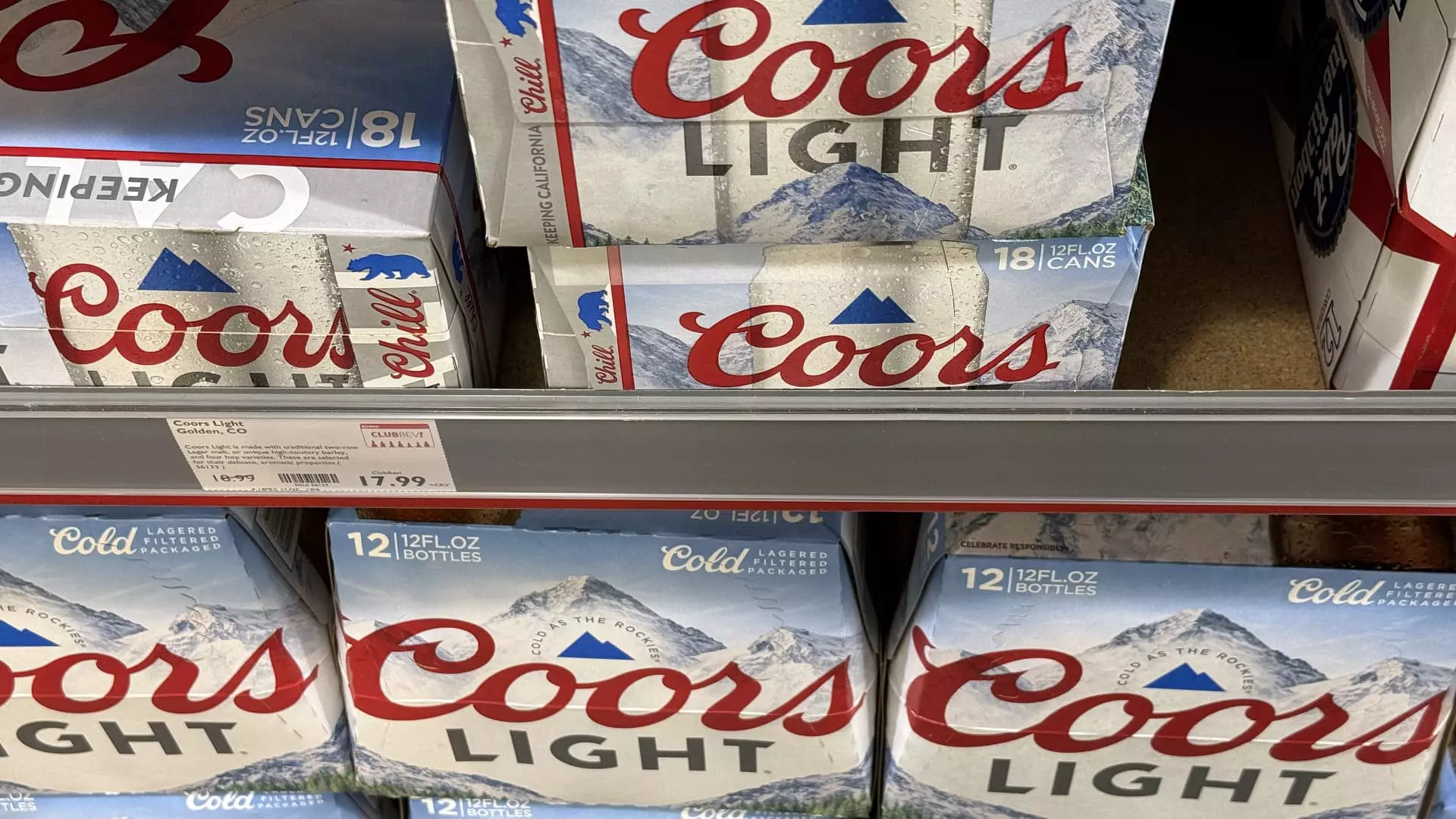Molson Coors recently made headlines with their decision to reverse their diversity, equity, and inclusion (DEI) policies. This move comes at a time when many companies are reevaluating their approach to DEI initiatives. In an internal memo obtained by CNBC, Molson Coors executives stated that they will be eliminating supplier diversity quotas, citing complexities and external factors influencing these quotas. While the company will continue to ensure that its suppliers reflect its diverse consumer base, they will no longer tie executive incentives to aspirational representation goals, starting from next year.
Additionally, Molson Coors announced that they are revamping their company trainings to focus on key business objectives rather than DEI-based programs. This shift signals a departure from the previous emphasis on diversity, equity, and inclusion in employee training. The company will also rebrand its Employee Resource Groups as Business Resource Groups, indicating a change in approach while maintaining the core functions of these groups.
Furthermore, Molson Coors plans to redirect its corporate charitable giving programs towards supporting core business goals such as alcohol responsibility, disaster relief efforts, and promoting access to higher education. This change in focus will undoubtedly have implications for the organizations that have benefited from Molson Coors’ charitable initiatives in the past, particularly those in the LGBTQ+ community.
While conservative activist Robby Starbuck characterized these changes as a preemptive response to his probe into the company’s DEI practices, Molson Coors asserts in their memo that the decision had been in process since March. This response highlights the challenge that companies face in balancing external pressures and internal priorities when it comes to DEI initiatives.
Industry Trends
Molson Coors’ decision to reverse their DEI policies is part of a broader trend among retailers and companies who are scaling back their diversity efforts. This trend began with Rural retailer Tractor Supply severing ties with LGBTQ+ advocacy groups and retiring previous DEI targets, leading to similar moves by companies like Harley-Davidson and Lowe’s. Ford executives also outlined plans to reduce supplier diversity quotas and end relationships with metrics like the Human Rights Campaign’s Corporate Equality Index.
The resurgence of corporate DEI practices in the wake of events like the murder of George Floyd and the Black Lives Matter protests of 2020 has been met with challenges, particularly in light of the Supreme Court’s decision to overturn affirmative action in colleges. While the legal implications of this decision do not directly impact corporate DEI initiatives, companies are wary of the anti-DEI sentiment that is gaining traction in the broader societal context.
Molson Coors’ reversal of their diversity, equity, and inclusion policies reflects a larger trend of companies reassessing their approach to DEI initiatives in response to external pressures and changing priorities. The impact of these changes on the company’s workforce, supplier relationships, and charitable initiatives remains to be seen, but it underscores the complex landscape that companies navigate when it comes to promoting diversity and inclusion in the corporate world.

